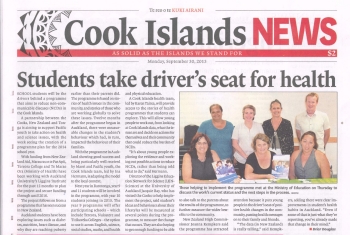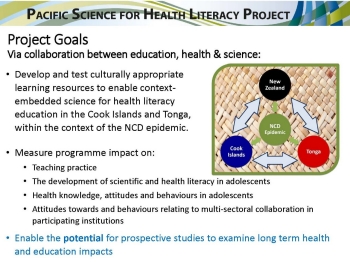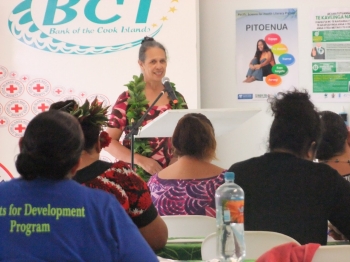In August 2016 a workshop was held to provide an opportunity for the team to share with the wider community what had been learnt through the pilot project and to collaboratively decide on the future of this school-science-health community partnership.
More than 50 educators, health professionals, researchers and representatives of community organisations from Rarotonga and the Pā Enua (outer islands) of Aitutaki, Atiu and Mangaia and New Zealand attended this workshop in Rarotonga.
The programme for the meeting can be viewed here.
The clear consensus from the workshop was that the project should not only continue, but should be made accessible to a larger number of communities. It was also agreed that a proposal for further funding should be created and submitted to NZAid for consideration.
From the discussions, a draft proposal focused on not only on school communities, but also expanded to include the health and agriculture communities was developed. A number of clear messages came from the meeting, including the importance to the community of having access to relevant data and evidence to explore from their own communities.
The draft proposal was submitted for consideration to the NZ Ministry of Foreign Affairs and Trade Aid Programme at the end of August. This proposed the consolidation and national implementation of the pilot to establish broader capability in:
- leadership and coordination across multiple sectors, including education, health and agriculture
- design and development of teaching/learning resources for both the education and health sectors
- data collection and evidence development to inform practice and policy
It is anticipated that if the application is successful, the project will expand to Pā Enua (outer island) communities, firstly on Aitutaki, Atiu and Mangaia, and develop to respond to emerging evidence relating to key NCD risk factors such as fruit and vegetable consumption and physical inactivity patterns.








